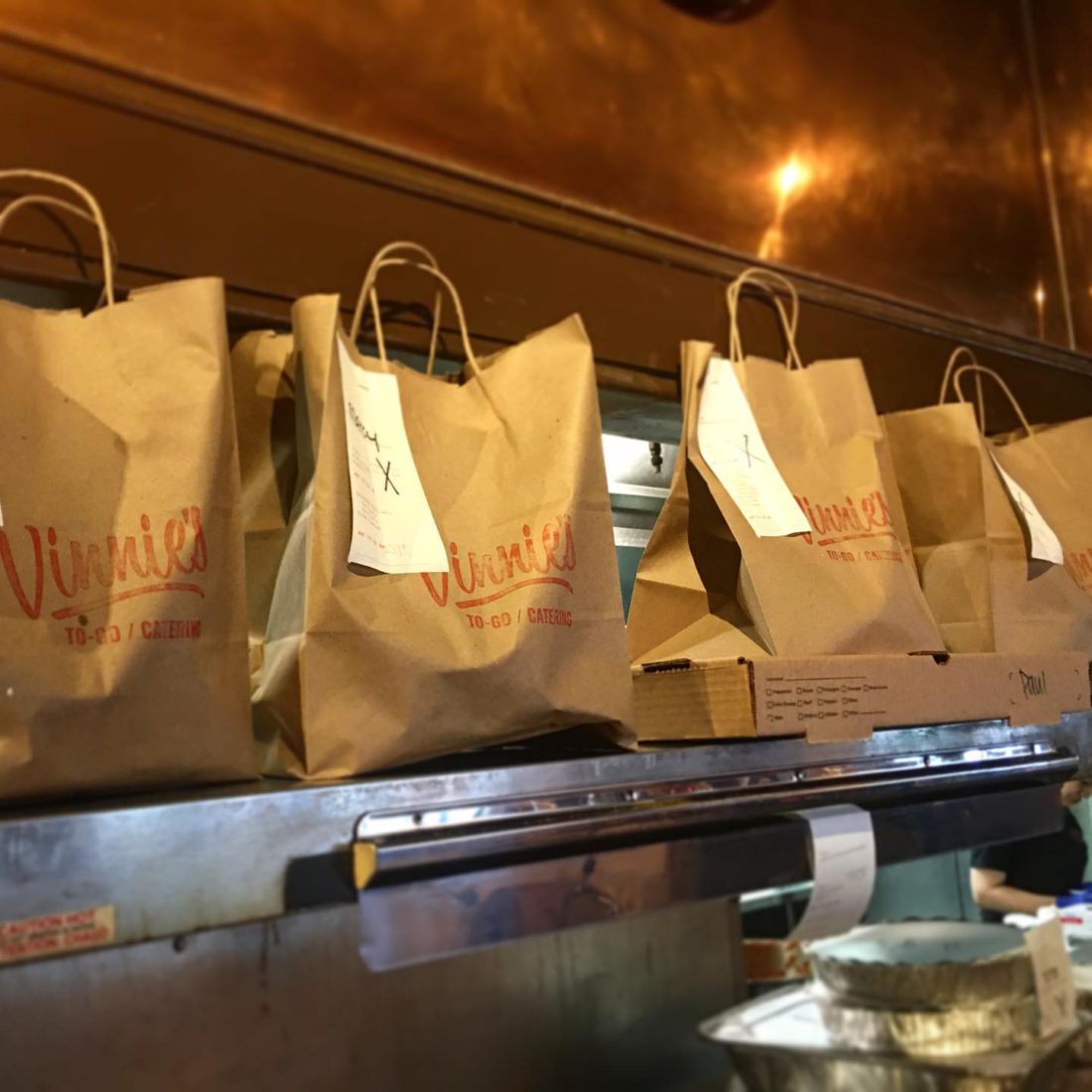To-go or not to-go. That was the existential question facing hundreds of business owners in this restaurant-rich region in response to an executive order issued March 17 by Gov. Roy Cooper closing all bars and prohibiting in-house dining for an indefinite period.
The directive does allow for takeout, delivery and drive-thru options. For fast-food giants that count window-to-car transactions as a significant part of their revenue, it was a simple pivot. But for the owners of Western North Carolina’s independent restaurants, there was nothing simple in weighing whether to shutter entirely or devise a transition to takeout.
Anticipating Cooper’s order, the Asheville Independent Restaurant Association hosted an emergency meeting of its member-owners March 16 to hear from and question Buncombe County health officials and emergency management representatives, labor law experts and the Small Business Administration on what they might be facing. And since the first day of pandemic closures, AIR has maintained a spreadsheet detailing the services member restaurants are able to offer, a list that AIR Executive Director Jane Anderson says “changes daily, almost hourly.”
Chefs Laura and Brian Smith, co-owners of Rezaz, spent several days agonizing the pros and cons of their situation before the governor’s order. “Brian and I had been looking at what was happening in Italy and other places and started questioning everything,” Laura recalls. “Will we have to shut down, what will we do about our employees? It wasn’t so much the livelihood of the business as the livelihoods of the 30 individuals we take responsibility for. Every independent restaurant in this town makes a family of their workers.”
They decided on March 13 that they would have to close Rezaz entirely, but they wanted to give their staff time to make as much money as possible before shuttering. “We brought them in Tuesday, the day of the order, and basically let them all go. It was very emotional.”
When employees returned two days later to get their paychecks, the Smiths had organized all the information they needed to file for unemployment and had cooked plenty of food for them to take home and put in their freezers. “It was devastating,” says Laura.
“The most horrible day of my life in this business” is how Eric Scheffer, owner of Vinnie’s Neighborhood Italian, describes having to lay off over 40 employees of his 10-year-old restaurant. But because the North Asheville restaurant already had a reliable takeout trade, he felt they could keep the kitchen open with a skeleton crew. “We were technically ready for it.”
Still, there were many adjustments to be made, such as retooling the menu and setting up systems to maintain social distancing among the staff he kept on to implement takeout seven days a week, noon-8 p.m. Remaining open — and the generous tips Scheffer says customers add to their checks — has also allowed him to offer a daily meal to all of his laid-off employees. “We’re holding our own,” he says. “Over 90% of what we’re cooking, people are coming to pick up, which surprised me. But I think most people just want to get out of the house.”
For A.J. Gregson, who has owned Black Bear BBQ with wife, Autumn Pittman, since August 2018, the decision to remain open for takeout was a no-brainer. “If I close for over a week, I’m done,” he says. “We have no bankroll. We had a lot of takeout business before this, so we made adjustments to keep going.”
The adaptations included paring down the menu, moving to four days a week and cutting hours of operation and staff while piling up the hours himself. Gregson also runs a food truck three days a week that he parks at various local apartment complexes by prearrangment, and he’s offering no-contact deliveries left at the door of customers who preorder and pay.
“If the food truck keeps up, and we keep the numbers going that we have now, it’s sustainable,” he says. “Some restaurants are better suited to this than others. Places where the ambiance is a big part of what they do, it’s hard to put that in a to-go box. Luckily, my food doesn’t require ambiance, just flavor.”
Scheffer agrees that navigating times of trouble often depends on the type of food you offer. His first Asheville restaurant, The Savoy, was a fine-dining establishment, a segment that ran into trouble during the Great Recession of 2008.
“I closed that and went back to my roots,” says the native New Yorker. “There was no red-sauce Italian, New York-type joint here, and I thought there was a need for that, so I opened Vinnie’s, a place people could feel loved and part of the family. We’ve been very successful with that.”
Especially in hard times, says Scheffer, people are seeking comfort. “So we’ll keep doing takeout until we get out of this thing. Then we’ll welcome people back to the restaurant.”
Check avl.mx/730 for updates on area restaurants that are offering takeout and delivery.




Before you comment
The comments section is here to provide a platform for civil dialogue on the issues we face together as a local community. Xpress is committed to offering this platform for all voices, but when the tone of the discussion gets nasty or strays off topic, we believe many people choose not to participate. Xpress editors are determined to moderate comments to ensure a constructive interchange is maintained. All comments judged not to be in keeping with the spirit of civil discourse will be removed and repeat violators will be banned. See here for our terms of service. Thank you for being part of this effort to promote respectful discussion.